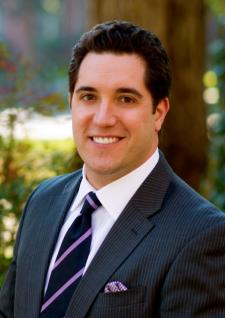Good Manners in College Admission
Posted on Wed, 12/04/2013 - 10:22Manners count! Lisa Heffernan, from favorite blog Grown and Flown, has ten great reminders for why manners matter, especially for millennials. While she doesn't specifically address the etiquette of the college application process, students would do well to mind her advice. Remember to thank the school counselor and teachers who wrote your letters of recommendation. Be on time for appointments with college representatives and admission office interviews. Be courteous and kind to EVERYONE who works in a college admission office. When you receive your decisions, respond to all of the schools on your list to let them know your plans. We could go on, but our favorite takeaway from Heffernan's post should suffice as a "golden rule" during the application process: Manners are something that people will remember about you, even if they don’t remember what they remember. Manners make an impression and while someone may not recall why they thought well of you (or badly, if you have ignored this) it may have been your courtesy. Don’t take a risk, remember what you have been taught. Read the whole post here.
Seniors: Beware the Biggest Interview Faux Pas
Posted on Tue, 12/03/2013 - 18:06Dr. Robert Alexander of Millsaps College Answers Five Questions
Posted on Mon, 12/02/2013 - 16:00
Millsaps College, a private liberal arts school, located in Jackson, Mississippi, was founded in 1890 when Civil War veteran and businessman Major Reuben Millsaps made a personal gift of $50,000 -- matched by contributions from Mississippi Methodists -- toward the establishment of "a Christian college within the borders of our state."
Set on 100 acres in the heart of Mississippi's capital, today Millsaps is home to 910 undergraduate students, who come from 26 states and 23 countries. Named as both a College That Changes Lives and a Fiske Guide "best buy" school, the college has a faculty-student ratio of 1 to 9 and an average class size of 14.
Will Cardamone, Manlius Pebble Hill School
Posted on Mon, 12/02/2013 - 12:46William Cardamone grew up in New York State, the youngest of ten children. His father was a judge on the U.S. Court of Appeals and his parents pinned their hopes for a lawyer from the family on their youngest son, the only one of the ten who seemed interested in the law. Cardamone obliged -- in his own time -- graduating from Hamilton College and spending three years in the West as a wilderness guide before attending Vermont Law School.
But then he took another detour, teaching social studies for four years to 11th and 12th graders at Woodstock High School in Vermont's capital. He returned to the law for a few years, practicing employment and education law at a firm in Utica, New York. Until he visited a former advisor at his alma mater of Hamilton and spent the next eight years in their admission office, rising to Associate Dean of Admission.
While his wife, also a "recovering attorney," says Cardamone, rose in the ranks of her family's business which she would eventually lead, he found his true calling, As he worked with independent high schools in the region, recruiting for Hamilton, he said, "That's the job I want." In 2006, he joined Manlius Pebble Hill School in DeWitt, New York, as Dean of Students, eventually becoming Director of College Counseling in 2010.
College Admission on WGN Radio
Posted on Wed, 11/27/2013 - 21:44
Tune into WGN Radio 720 on Friday morning and join Christine VanDeVelde in conversation with Jenniffer Weigel on the "college diet," checklist items for seniors, and dealing with early decision news.
Seniors: Eat Pie and Finish your Applications!
Posted on Wed, 11/27/2013 - 10:17
Seniors, our advice this week is to eat some pie… and continue to finish up your applications. While this is a time for relaxing with family and friends, if you're still not done, carry on.
For help with the new Common Application, download our free guide to The Application Form here.
And if you're still writing and wordsmithing, here are some past blog posts on the subject of essays for advice and inspiration in the aftermath of your Thanksgiving repast and all that pie:
Advice for Students on the New Common App Essays Prompts
More Advice for Writing the "Why Us?" Essay
A Memorable Essay? Might Be Family Breakfasts, Piano Lessons, or Raising Pigs...
This Week's Advice for Juniors: Sleep In and Eat Pie!
Posted on Tue, 11/26/2013 - 11:32
Juniors, our advice for this week is to sleep in and eat pie. This is a time for relaxing with family and friends. We do have a couple of suggestions, though. If you're visiting family near a college in which you might be interested, consider taking a drive through the nearby campus. The admission office will likely be closed, but it's still a great time to walk through the grounds. And if you have a chance to visit with any of last year's seniors who are returning from their first few months at college, take the time to ask them about their application experience. What they wish they had known or had done differently or maybe what mattered most for them in selecting and choosing a college. Other than that, stick with the program of football, pie, family and sleeping in.
"Give us your Top Ten list": And other essay questions from Wake Forest, U of Chicago, and more...
Posted on Mon, 11/25/2013 - 12:53Valerie Strauss at the Washington Post's Answer Sheet has collected some of the unusual essay questions colleges have posed this year in their supplements. One of our personal favorites: In 2006, graduate student Robert Stilling discovered an unpublished poem by Robert Frost while doing research in U.Va.’s Small Collections Library. Where will your Stilling moment be in college? Courtesy of University of Virginia. Check them all out here.
Did You Know? Big Bird is a Turkey and 19 Other Interesting Facts about This Week's Centerpiece
Posted on Mon, 11/25/2013 - 11:13Homeschooling journalist Heather Saunders brings us "Twenty Interesting Things About... Turkeys" via The Pioneer Woman blog. For example, did you know Benjamin Franklin thought the turkey should be our national bird? And it's true: Big Bird's costume is comprised of feathers from 45-pound turkeys. Read on for more illuminating facts about this week's holiday centerpiece. And Happy Thanksgiving!
The Other Essays that are "All About You": Your Recommendations
Posted on Thu, 11/21/2013 - 11:24
John Carpenter is back this month to remind students that there are some other essays that are "all about you" -- the recommendations from your counselor and teachers. Read on for his tips on how to get the best writing -- that is, the best results!
In applying to college, writing is enormously important because good writing tells us something we need to know. I spend a lot of time talking to students about writing their essays, and I usually enjoy reading what people have written and hearing the stories. While there’s a lot of emphasis on creating the perfect essay, there’s another kind of writing where students also have some influence and most high school kids don’t even think about it -- and that’s the recommendations.
Yep, recommendations. Those other great little essays that are all about you, written by your teachers and counselor. If you think it’s tough to write a personal statement for an application and a couple of short supplement essays as well, imagine what it’s like for your high school English teacher who is probably writing about 15 or 20 essays--er, I mean, recommendations--for her students. And then there’s your counselor who, depending on how big your graduating class is, could be writing 15 or 20 -- or even as many as 100 or more. Seriously!







